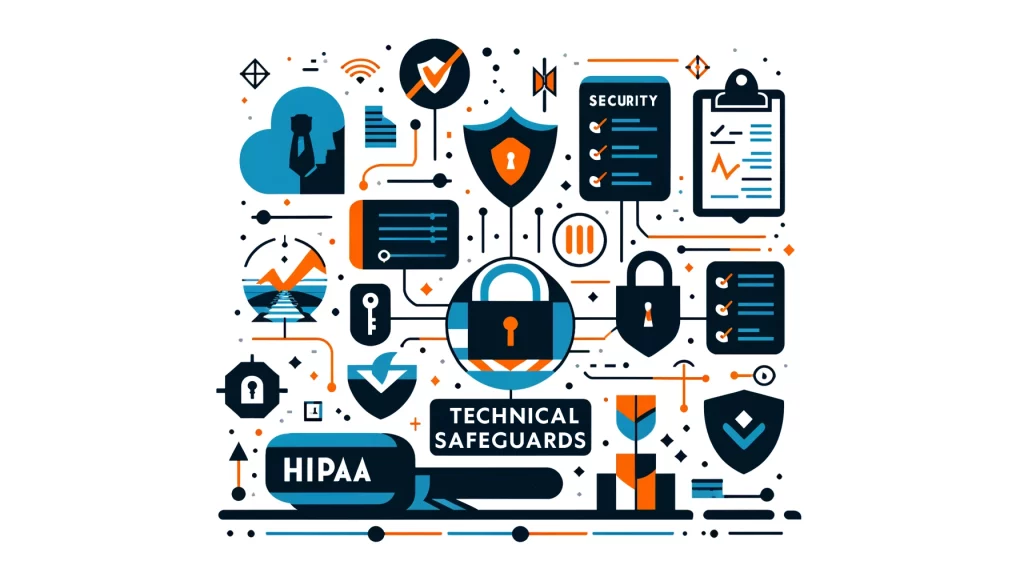
HIPAA Technical Safeguards

Introduction
In the modern digital era, healthcare institutions utilize cloud-based systems to store and handle patient information. With this change, we need to make sure we follow the rules of HIPAA and its technical safeguards.
This article will explain the basics of HIPAA technical safeguards. These safeguards are important for managing data in the cloud. We will also provide examples of how to ensure your cloud environment is safe and compliant with the rules.
What are HIPAA Technical Safeguards?
HIPAA technical safeguards are a set of requirements outlined in the HIPAA Security Rule. We designed these safeguards to protect the confidentiality, integrity, and availability of electronic protected health information (ePHI). Covered entities and their business associates must implement these safeguards to ensure the security of patient data.
You can divide the HIPAA technical safeguards into four main categories:
- Access controls
- Audit controls
- Integrity controls
- Transmission security
Access controls involve implementing policies and procedures to limit access to ePHI to authorized individuals only. Audit controls make sure organizations keep an eye on who is accessing ePHI and record it.
This helps them catch any unauthorized access or breaches. Integrity controls prevent unauthorized alteration or destruction of ePHI. Transmission security involves protecting ePHI during electronic transmission, such as through encryption.
Cloud Data Governance and HIPAA Technical Safeguards
Cloud data governance is the process of managing and securing data stored in the cloud. Establishing and maintaining technical safeguards to comply with HIPAA regulations is crucial for cloud data governance. This means that proper measures need to be in place to protect sensitive information stored in the cloud. Regular updates and monitoring are necessary to ensure ongoing compliance with HIPAA requirements.
Healthcare organizations must work with cloud service providers that understand and comply with HIPAA regulations. This involves ensuring that the cloud infrastructure has proper security measures. These measures include encrypting data, controlling access, and maintaining audit logs.
Sources of Data and HIPAA Technical Safeguards
HIPAA technical safeguards apply to all ePHI, regardless of its source. This includes data generated by electronic health records (EHRs), medical devices, mobile applications, and other healthcare technologies. Organizations must ensure that all systems and applications that handle ePHI are compliant with HIPAA technical safeguards.
Security Aspects of HIPAA Technical Safeguards
Implementing HIPAA technical safeguards involves addressing various security aspects, such as:
- Encryption: To safeguard it from unauthorized entry, you need to encrypt ePHI both while stored and during transmission.
- Access management: Organizations should use strict access controls to ensure only authorized individuals can access ePHI. These controls include role-based access and multi-factor authentication. Role-based access limits the information that each individual can access based on their job responsibilities. Multi-factor authentication requires users to provide two or more forms of verification before accessing ePHI.
- Monitoring and auditing: Continuous monitoring and auditing of access to ePHI are essential for detecting and responding to any suspicious activities or breaches.
- Disaster recovery and business continuity: Companies must have solid plans for disasters to ensure ePHI remains accessible.
Examples of Creating Cloud Data Governance
To create a HIPAA-compliant cloud data governance framework, organizations can follow these steps:
- Conduct a risk assessment: Find dangers and weaknesses in the cloud and create a plan to reduce them.
- Implement access controls: Use access controls and multi-factor authentication to ensure only authorized users can access ePHI. Use DataSunrise to manage user access to cloud resources and enable multi-factor authentication for additional security.
- Enable encryption: Encrypt ePHI both at rest and in transit using industry-standard encryption algorithms. Use DataSunrise to automatically encrypt data at rest and in transit, ensuring the protection of sensitive information.
- Monitor and audit access: Implement monitoring and auditing solutions to track access to ePHI and detect any unauthorized activities. Use DataSunrise to collect and analyze logs from cloud resources and set up alerts for suspicious activities. DataSunrise provides real-time monitoring and auditing capabilities, enabling organizations to quickly detect and respond to potential security threats.
- Create plans for how to respond to incidents and disasters. These plans should be detailed and focus on protecting ePHI in case of a security incident or disaster. Ensure that you design the plans to keep ePHI available and secure. Use DataSunrise’s data masking and tokenization capabilities to safeguard sensitive data in non-production environments, like disaster recovery sites. This ensures that ePHI protects even during failover procedures.
Conclusion
HIPAA technical safeguards are essential for protecting patient data in the cloud. Healthcare organizations can comply with HIPAA regulations and maintain patient trust by using a strong cloud data governance framework. This framework should cover access controls, encryption, monitoring, and disaster recovery.
DataSunrise offers exceptional and flexible tools for data management, including security, audit rules, masking, and compliance. Their comprehensive platform helps organizations secure and manage sensitive data across various databases and cloud environments, simplifying the process of achieving HIPAA compliance.
DataSunrise provides real-time monitoring, data discovery, and dynamic data masking features. These features assist healthcare organizations in identifying and addressing risks promptly. Additionally, they help in safeguarding patient data privacy and security. The platform’s user-friendly interface and extensive reporting capabilities make it easy for organizations to demonstrate compliance and maintain a strong security posture.
Visit the DataSunrise website to learn how they can help protect and control sensitive data in the cloud. You can book an online demonstration to see their services in action. Take the first step in safeguarding your organization’s data by scheduling a demo today.
The experts will work closely with you to understand your specific needs. They will then create a customized solution that meets your HIPAA compliance requirements.
